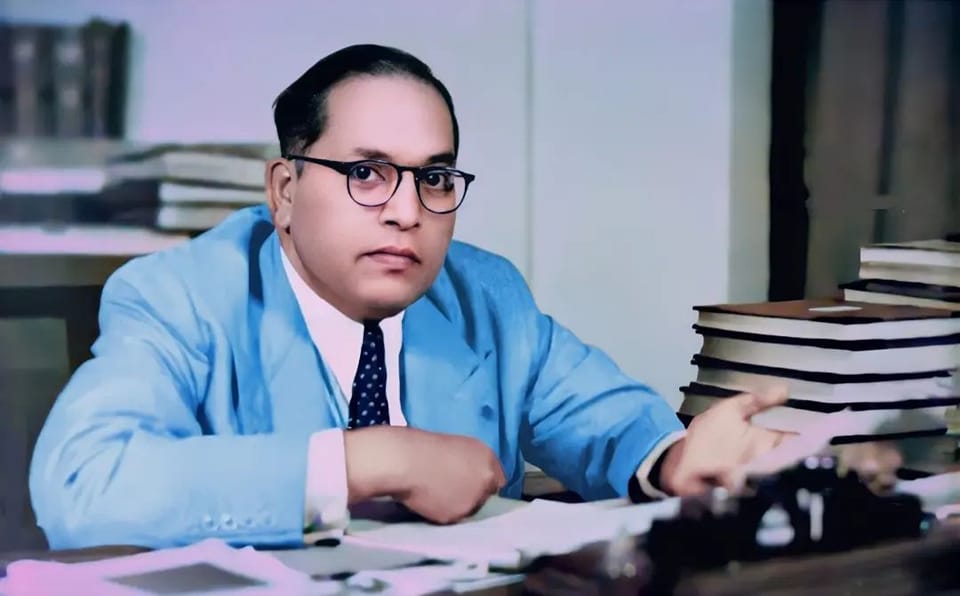In modern India, few issues spark as much debate as reservation. Supporters see it as a tool for social justice. Critics call it reverse discrimination. But most people — whether for or against — rarely ask the most important question:
What did Dr. B. R. Ambedkar really say about reservation?
Let’s cut through the noise and uncover the truth by separating myths from facts, based on Ambedkar’s own words and actions.
🔍 Myth #1: Ambedkar Wanted Reservation Only for a Few Years
✅ Fact: Ambedkar originally proposed reservation as a temporary safeguard, but he never believed the effects of caste would disappear quickly.
🗣 “You cannot build anything on the foundation of caste. You cannot build up a nation, you cannot build up a morality. Anything that is of the nature of a permanent interest must be based on religion and not on caste.”
— Dr. Ambedkar, 1936
Reservation was meant as a means to achieve equality, not a permanent solution — but its duration was to depend on the persistence of inequality, which still exists today.
🔍 Myth #2: Ambedkar Supported Only Caste-Based Reservation
✅ Fact: Ambedkar’s primary concern was social and educational backwardness, which in India has been deeply linked to caste.
He supported reservation based on historical oppression, not merely poverty. According to him, economic disadvantage alone cannot justify affirmative action.
🗣 “Caste is not a physical object like a wall of bricks or a line of barbed wire. It is a notion; it is a state of the mind.”
He understood that upper-caste poor still had social capital, while Dalits and Adivasis suffered deep, generational exclusion.
🔍 Myth #3: Ambedkar Opposed Political Reservation
✅ Fact: Ambedkar was one of the strongest advocates for political representation of Dalits (Depressed Classes at the time).
-
In 1932, he negotiated the Poona Pact with Gandhi, ensuring reserved seats in legislatures for SCs.
-
In the Constituent Assembly, he fought for separate electorates, which he later compromised on to maintain national unity.
🗣 “We must have our representatives in the legislatures… otherwise, we will always be governed by others without a voice.”
🔍 Myth #4: Ambedkar Was Against the Idea of Merit
✅ Fact: Ambedkar didn’t reject merit — he challenged the idea that merit exists in isolation from privilege.
He argued that opportunity — not just ability — defines merit. In a society where Dalits were denied access to schools, jobs, and dignity for centuries, equal competition was never truly possible.
🗣 “What is the value of a system in which those who have been denied education and opportunity for centuries are suddenly asked to compete with those who’ve always had access to it?”
He wanted to level the playing field, not lower the bar.
🔍 Myth #5: Ambedkar Would Have Opposed Reservation Today
✅ Fact: If Ambedkar were alive in 2025, it’s likely he’d be deeply concerned about continued caste discrimination, and still support reservation — but he might also push for stronger enforcement, better data, and new forms of empowerment.
He believed in constant evaluation, but never in abandoning tools of justice prematurely.
🧠 Ambedkar’s Core Philosophy on Reservation
-
Reservation is not charity. It is compensatory justice for centuries of exclusion.
-
Social justice must be structural. Not just emotional or symbolic.
-
True equality comes when the oppressed can stand shoulder to shoulder with the privileged — without fear, shame, or disadvantage.
🔚 Conclusion: Ambedkar’s Legacy Is Still Being Debated — and Defended
In a society still divided by caste-based violence, discrimination, and inequality, reservation continues to be necessary — not because Ambedkar wanted division, but because he dreamed of annihilating caste.
Until that dream is achieved, the tools he gave us — including reservation — remain relevant.
🙏 “Justice has always evaded those who have been oppressed, but it must now be delivered through the Constitution and the institutions of the state.”
— Dr. B. R. Ambedkar

